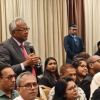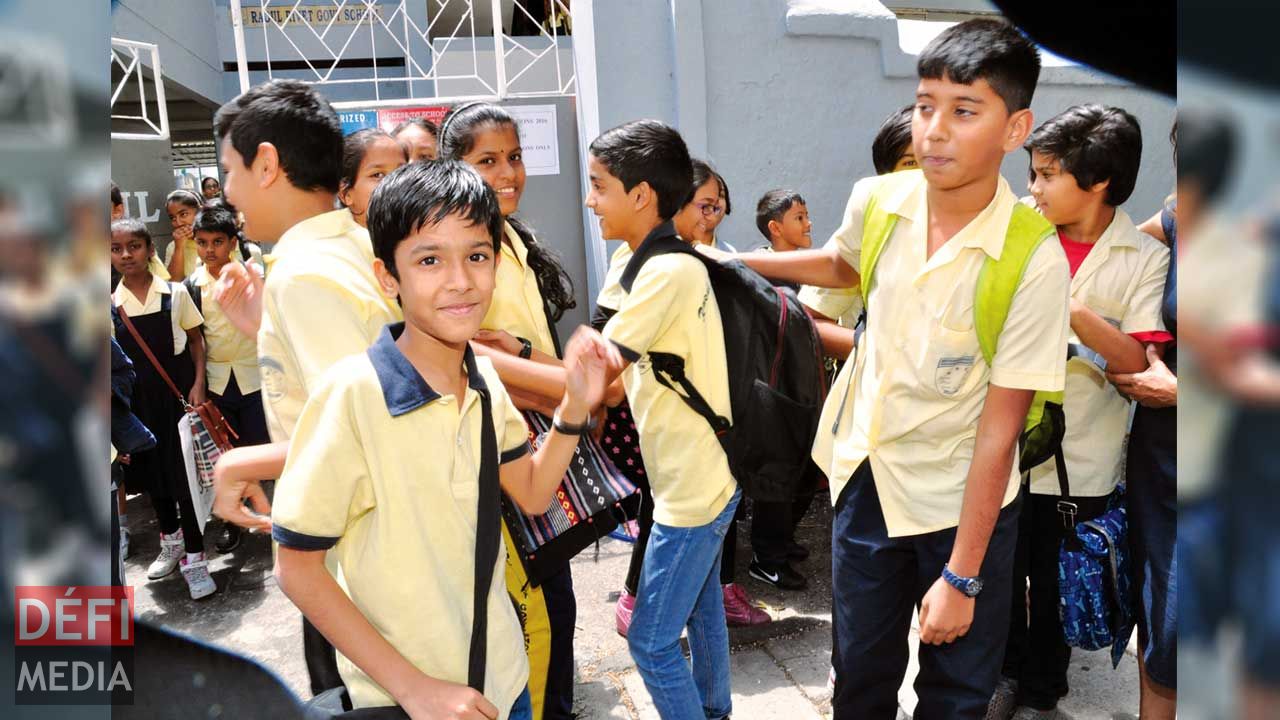
As from next year, students at the end of the primary education cycle will not have to sit for the Certificate of Primary Education exams. The Nine-Year Continuous Basic Education programme, to be introduced as from January 2017, aims at providing an alternative learning environment.
Publicité
Year after year, the Certificate of Primary Education (CPE) and its associated competition have been criticised across the board. However, any change brought by successive governments have never been able to rid the system of its stark competition and private tuition – which makes a mockery of the whole concept of the free eduction concept. The Lepep government has decided to finally put an end to the old system and has introduced a new education model – the Nine-Year Continuous Basic Education – which has been designed to provide a holistic education to children.
Last week, the Minister of Education, Mrs Leela Devi Dookun-Luchoomun, while spelling out some key changes brought to the system, stated that the objective is to ensure that children benefit from the Nine Year Continuous Basic education and develop essential competencies with equitable Learning for All opportunities.
The implementation of the reform is beginning next year and the results of the reform will be seen over the coming years, the Minister said. She announced the start as from this week of the communication strategy on the NYCBE with the issue of information packs, materials and video clips. Mrs Dookun-Luchoomun also spoke about other key components namely: first PSAC assessment, Admission after Grade 6, Curriculum, Training, Recruitment exercise, Digitised learning, National Certificate of Education assessment, and Additional Scholarships.
Core amendments brought to the system are as follows:
- Introduction, as from Grade 1, of the Primary School Readiness Programme to facilitate the transition of pupils from pre-primary to the primary level.
- The start of the Early Support Programme from Grade 1 which seeks to address the learning difficulties of pupils identified at the very start and hence reduce learning gaps. For this purpose, support teachers have been recruited and trained. The programme will be planned and developed by both the class teachers and the support teachers. The support teachers will subsequently use innovative pedagogies to address learning gaps.
- Holistic development programme – while not neglecting cognitive development of learners, the NYCBE puts focus on their socio-emotional, physical, creative or intuitive and aesthetic potentials.
- Assessment review – at the end of Grade 6 in 2017, pupils will sit for the first time for the Primary School Achievement Certificate (PSAC) which replaces the CPE (Certificate of Primary Education).
First PSAC assessment
The first PSAC assessment will consist of the following: Written assessment in core subjects, including in optional languages Arabic/Asian/Kreol Morisien; and, School-based assessment in the non-core learning area of Communication skills, and the level of competencies attained will be defined as either basic or intermediate or proficient.
Also, a modular assessment for two subjects, namely History & Geography and Science will be introduced. This will enable pupils to enable to concentrate on a limited amount of subject content assessed at a given time. This approach will be used as from 2017.
Admission
Admission will be effected on a regional mode after Grade 6. The NYCBE advocates that all learners move on to Grade 7 through a regional mode of admission based on the following criteria: parental choice; grade aggregate at the PSAC; and proximity of residence to the secondary school.
In the advent that a child at the end of Grade 6 has not yet attained the required level, he will have the possibility to follow a four-year cycle. A special reduced class size reserved in every secondary school will cater for learners requiring special support.
Curriculum, Training and Recruitment
As regards curriculum, Grades 1 to 6 curriculum have been reviewed after consultations with stakeholders and Educators. This has resulted in the elaboration of a new National Curriculum Framework (NCF) involving the preparation of new textbooks, while a new NCF for Grades 7 to 9 is being finalised.
In line with the implementation of the NYCBE reform, a comprehensive training plan has been worked out for primary school personnel at all levels. Additional Educators are being recruited, especially for the Holistic Education programme based on a broad range of topics and areas of interest, and for the Early Support Programme following the introduction of remedial teaching in Grade 1 classes.
Digitised learning
For the first time an Early Digital Learning Programme is starting in the first quarter of 2017. Under the programme, tablets will be provided to pupils of Grades 1 and 2 with the support of the Indian Government. Digitised learning materials will be uploaded on these tablets for equitable learning opportunities for all.
NCE and Regional Scholarships
The NCE assessment that will be introduced at the end of Grade 9 will be held for the first time in 2020. This will serve for the progression of students to upper secondary and orientation to general or technical vocational education. In addition to the existing Laureate Scheme, 16 Regional Scholarships will be introduced in 2019.

Notre service WhatsApp. Vous êtes témoins d`un événement d`actualité ou d`une scène insolite? Envoyez-nous vos photos ou vidéos sur le 5 259 82 00 !














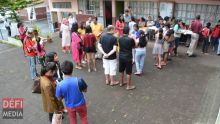
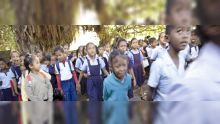
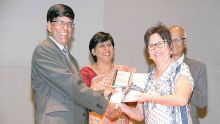
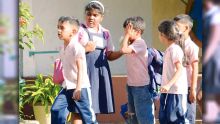
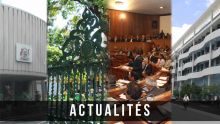
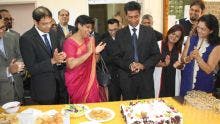

![[Document] Réforme électorale : découvrez les propositions du gouvernement](https://defimedia.info/sites/default/files/styles/medium/public/reform_electorale_document.jpg?itok=i-XvATtS)


